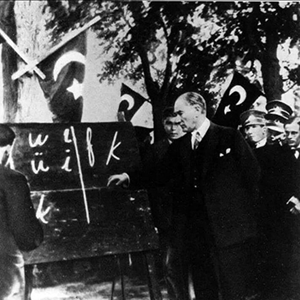The berrys paradox
Published:
 Berry’s Paradox is a curious and thought-provoking paradox in mathematics and philosophy that challenges our understanding of truth, reference, and meaning. The paradox was first proposed by Bertrand Russell’s student G. G. Berry in the early 20th century, and it has important implications for our understanding of language, semantics, and the nature of mathematical reasoning. The paradox has significant implications for the philosophy of language and mathematics, and it continues to be a topic of interest for scholars and educators.
Berry’s Paradox is a curious and thought-provoking paradox in mathematics and philosophy that challenges our understanding of truth, reference, and meaning. The paradox was first proposed by Bertrand Russell’s student G. G. Berry in the early 20th century, and it has important implications for our understanding of language, semantics, and the nature of mathematical reasoning. The paradox has significant implications for the philosophy of language and mathematics, and it continues to be a topic of interest for scholars and educators.
The paradox goes as follows: consider the following sentence, “The smallest positive integer not definable in fewer than eleven words.” This sentence appears to describe a well-defined mathematical object, namely, the smallest positive integer that cannot be described in fewer than eleven words. However, if we try to define this object using fewer than eleven words, we run into a contradiction: any definition of the object in fewer than eleven words would in fact define the object, thereby contradicting the original sentence.
The paradox illustrates a number of important concepts in mathematics and philosophy, including the nature of reference, the limits of language, and the relationship between language and the world. It challenges the idea that all mathematical objects can be precisely defined and characterized, and it highlights the importance of context and convention in mathematical reasoning.
Berry’s Paradox has important implications for the philosophy of language as well. It shows that the relationship between language and the world is not simply a matter of one-to-one reference, but rather it involves complex conventions, rules, and context. The paradox also raises important questions about the nature of truth and meaning, and it challenges our intuitions about the relationship between language and reality.
In conclusion, Berry’s Paradox is a fascinating and intriguing puzzle that challenges our understanding of mathematics, language, and the nature of truth. The paradox highlights the importance of careful reasoning and precise calculation in mathematics and philosophy, and it has important implications for our understanding of the limits of human knowledge and the relationship between language and reality. By exploring the ideas underlying Berry’s Paradox, we can gain insights into the nature of mathematical objects, the power of language, and the limits of human understanding.

 The year 2023 was full of various experiences for me. I took on the role of an Assistant Professor, and the journey had unexpected events like a major surgery, health issues within my family, starting a website, and picking up new hobbies. This post gives an honest overview of the good and bad moments that shaped my year. The foundation of everything in life is undoubtedly health. Without it, even the biggest achievements and detailed plans can fall apart. Health quietly influences our daily activities, professional goals, and personal relationships.
The year 2023 was full of various experiences for me. I took on the role of an Assistant Professor, and the journey had unexpected events like a major surgery, health issues within my family, starting a website, and picking up new hobbies. This post gives an honest overview of the good and bad moments that shaped my year. The foundation of everything in life is undoubtedly health. Without it, even the biggest achievements and detailed plans can fall apart. Health quietly influences our daily activities, professional goals, and personal relationships.  Ever wondered who the superheroes of the Java world are? Java Champions are like the rock stars of Java programming. They’re not just good; they’re exceptional! These are people who have shown their love for Java in outstanding ways. Java Champions are recognized as elite members of the Java community who have made significant contributions in various ways. Unlike certifications or titles that are earned through formal channels, becoming a Java Champion is an acknowledgment of a person’s ongoing and sustained efforts in the Java ecosystem.
Ever wondered who the superheroes of the Java world are? Java Champions are like the rock stars of Java programming. They’re not just good; they’re exceptional! These are people who have shown their love for Java in outstanding ways. Java Champions are recognized as elite members of the Java community who have made significant contributions in various ways. Unlike certifications or titles that are earned through formal channels, becoming a Java Champion is an acknowledgment of a person’s ongoing and sustained efforts in the Java ecosystem.  On November 24th, we observe Teachers’ Day in Turkey, a day that holds great importance and emphasizes the crucial role of education in our society. Mustafa Kemal Atatürk, a military leader and statesman, understood how education could profoundly shape a nation’s destiny. He believed that the progress and prosperity of a society were closely tied to the quality of its education system. Atatürk firmly believed that a well-educated and enlightened citizenry was the cornerstone for building a modern, democratic, and forward-thinking nation.
On November 24th, we observe Teachers’ Day in Turkey, a day that holds great importance and emphasizes the crucial role of education in our society. Mustafa Kemal Atatürk, a military leader and statesman, understood how education could profoundly shape a nation’s destiny. He believed that the progress and prosperity of a society were closely tied to the quality of its education system. Atatürk firmly believed that a well-educated and enlightened citizenry was the cornerstone for building a modern, democratic, and forward-thinking nation.